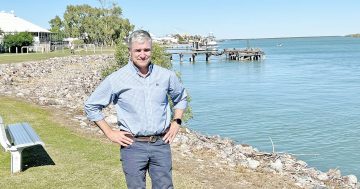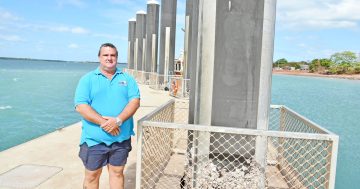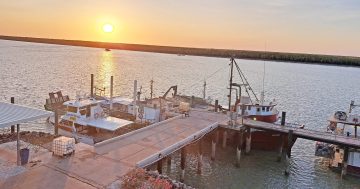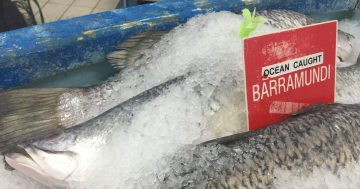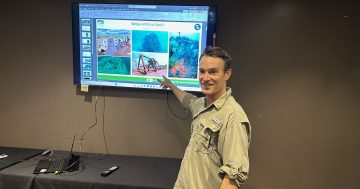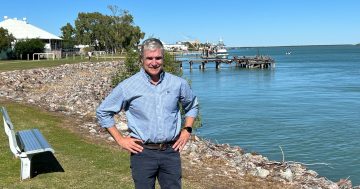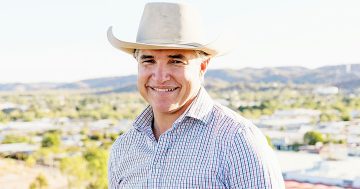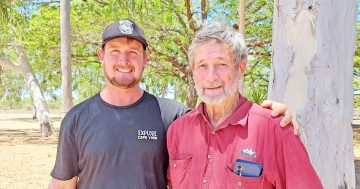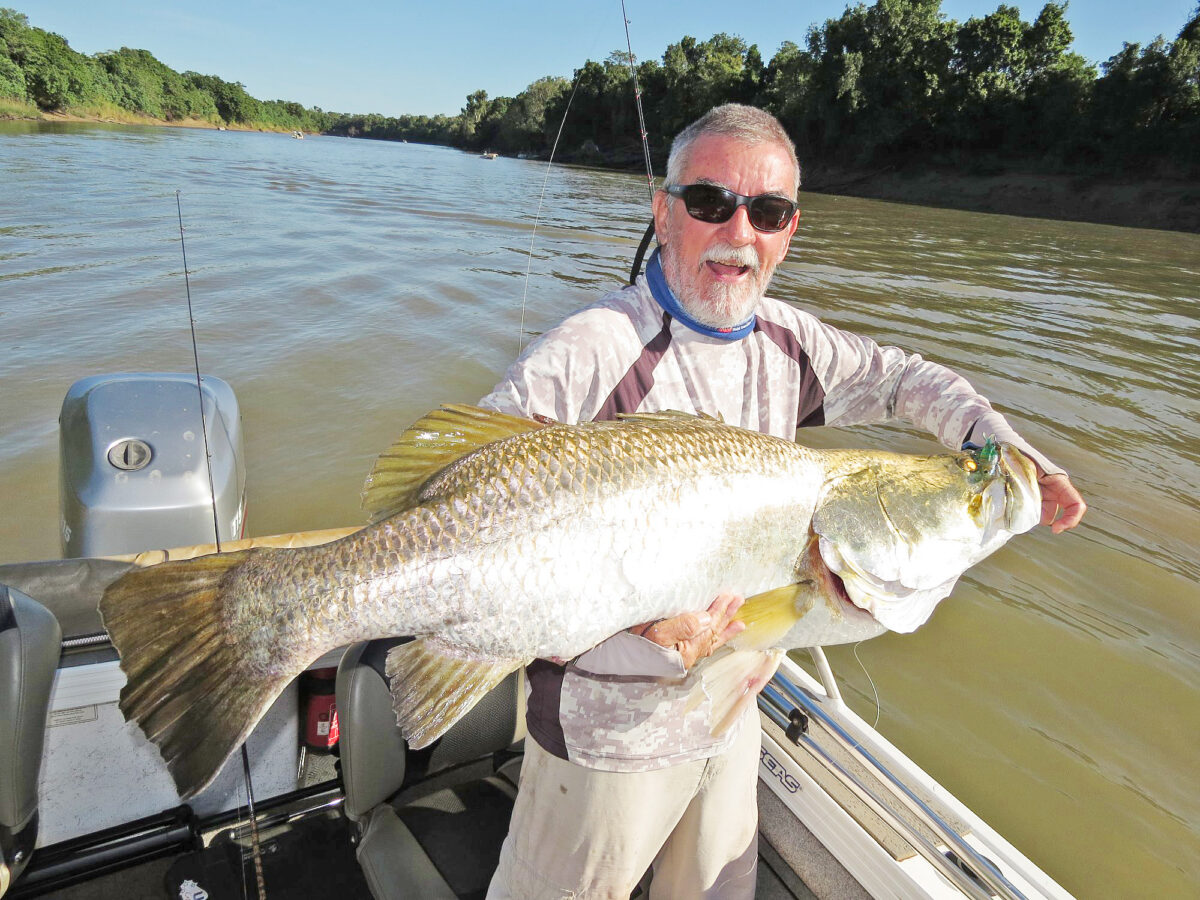
Dave Donald has been pushing for Albatross Bay to be a net-free zone since 1997.
AN idea first mooted in 1997 could become a reality as the state looks to develop more net-free zones in the Gulf of Carpentaria.
Long-time Weipa fishing guide Dave Donald has been pushing for the Albatross Bay to be a net-free zone for decades and is now asking the community to rally to make it a reality, which will enhance recreational fishing in the region.
“We’ve seen this weekend what the Weipa Fishing Classic does for the town’s economy,” he said.
“We rely on recreational fishing for tourism and for liveability.”
Mr Donald said last week’s state government’s announcement to ban gill nets in the Great Barrier Reef and to create a net-free zone north of Cape Bedford on the east coast was the starting point.
The government also said it would look at creating more net-free zones in the Gulf.
As a result, Mr Donald said now was the perfect time for Weipa residents to make a push for Albatross Bay to be a net-free zone.
“It just makes sense, because we don’t have a lot of profitable commercial fishing operations in this area,” he said.
“The bulk of the successful operators are working south of the Archer River.”
Mr Donald said the government could make an easy decision.
“They are going to make everything north of Cooktown a net-free zone on the east coast and they could extend that around the Tip and down to Weipa,” he said.
“I’d make it a net-free zone from the Archer all the way up to the Jardine in the Gulf and extend it out to 25 nautical miles, which is the border for state waters.”
Mr Donald said removing nets from Albatross Bay and the surrounding rivers would provide an immediate impact for recreational anglers.
“What people don’t realise is that the bycatch of the nets is killing a lot of our treasured species,” he said.
“They are targeting sharks and grey mackerel but they are getting queenfish, longtail tuna, trevally and Spanish mackerel in their nets.
“There’s also dolphins, turtles, dugong and other protected species that get caught in the nets.”
Mr Donald said once upon a time, commercial operators would leave a long trail of queenfish in the water.
“It would go for a kilometre, but then they started spiking the stomachs of the bycatch so they’d sink to the bottom and there would be no complaints,” he said.
“I’ve got evidence from my log books as a guide that the populations of queenfish, trevally, cobia, longtail tuna and grey mackerel dropped by 80 per cent between 1998 and 2008.”
In a statement to Cape York Weekly, a Fisheries Queensland spokesperson said no decision had been made on the new areas proposed to be gillnet-free in the Gulf of Carpentaria.
“There are already areas in the Gulf where commercial netting is not permitted, including the Albert, Norman, Mitchell and Pine Rivers,” they said.
“Any further areas to be declared gillnet-free will take into account known key habitats for species of conservation interest (such as dugong, turtle, sawfish and speartooth shark), recreational fishing grounds, and the benefits to fishery stocks, especially king threadfin salmon that are in need of rebuilding.
“Targeted consultation will be undertaken with affected stakeholders.”
In last week’s joint federal and state government announcement, a commitment was made to make the Great Barrier Reef gillnet-free by mid-2027.
A $160 million package has been put together, some of which will be used for compensation.
“This is an investment in the future of the reef and a more sustainable future for its commercial fishing industry,” said Queensland Fisheries Minister Mark Furner.
“By transitioning to more sustainable fishing practices and taking measures to maintain fish stocks, we can ensure the long-term viability of good jobs in the fishing industry for our children and our grandchildren.”


